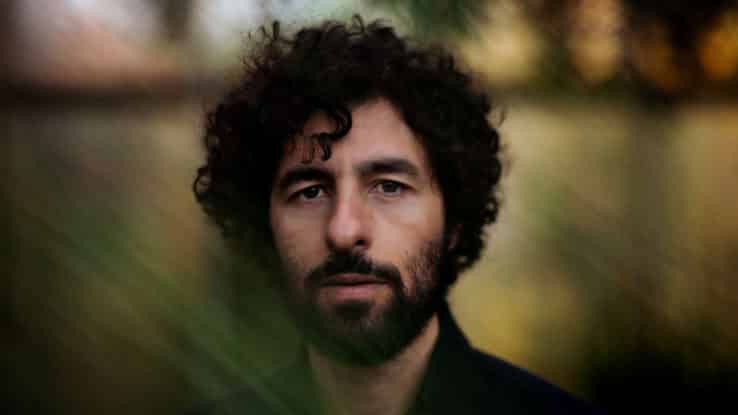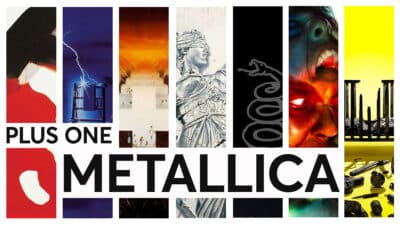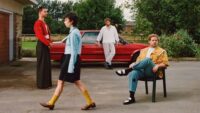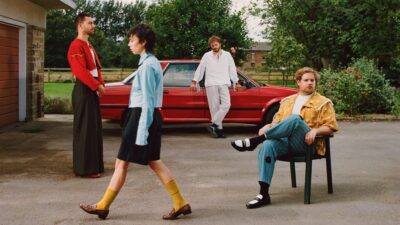Interview

Interview
José González: “Becoming older, I’ve felt like I want to be more in control of my own artistry”
We catch up with the Swedish singer-songwriter as he takes 2021's Local Valley on a world tour
José González’s return last year with Local Valley had been much awaited. These days, waiting four years to release a record feels against the grain, though that’s never seemed to bothered the Swedish songwriter, who left eight years in between In Our Nature and Vestiges & Claws. And nor should it, as all of his four albums have breathed a sincerity that’s key to his artistry in the first place, each letting in colourful glimpses of love, parenthood and shifting perspectives of our shared experience.
As he takes Local Valley on a tour around the world, we caught up with González to discuss its making, and how it reflects this development of his outlook as an artist, a father and a human.
Let’s start with Local Valley. Lyrically ‘El Invento’ and ‘Visions’, the opening tracks, both ask life’s bigger questions, and quite fittingly in two different tongues. When do you think you began looking at these wider questions?
I guess already on my first album I had some of those ambitions, but most of them were introverted and introspective. So I guess it was with the second album when I started to look up and look out; basically I had a hard time finding topics to write about, so it wasn’t until I decided to see what ideas are floating around in the world that are interesting to write about – global issues, ideas surrounding world views and globalisation in general.
With this album, everything got accelerated because of me becoming a dad and having this shift of perspectives. Before it was about me, but now it’s me and my daughter and son. I think becoming a dad shifted my style of writing in a couple of ways: one is the one we’re talking about, ideas about the future and the future of prosperity and how people can flourish; but also in terms of creativity, which I think was really fun. I had half of the record written, just guitar and vocals, but I decided to switch to different types of production, which I think was more creative and unusual, trying loops and drum machines and sillier lyrics.
I know the label were a little unsure at first about you including non-English songs, which would be the first time you’ve done so on an album. Why was it important to start the record with ‘El Invento’?
I had most of the songs done when I was trying to do the tracking for the album, so it wasn’t important to have Spanish as the first track, but I think that song set the tone for it. Short and classic. It was more about trying to fit the songs together in a way that worked, since the songs are pretty different from each other in my opinion.
What was it this time around that made you decide to include Swedish and Spanish?
Yeah, I had tried this on Vestiges & Claws, but I got stuck. So I tried again this time and it just worked. I’ve been thinking about the reasons for this, and I think one of them is that I was talking Spanish to my daughter these last couple of years. Another thing, there’s no room for getting stuck in a way when you don’t have that much time to write, as it was always in between kindergarten or cooking food or changing diapers. It was all about using the time that you had, and it wasn’t enough time to get stuck. So I think that helped too, just sitting down and doing the work.
Also, I’ve been asking myself what kind of artist I want to be and I think that’s where I’ve felt a bit silly, only singing in English since my two native languages are Spanish and Swedish. Becoming older, I’ve felt like I want to be more in control of my own artistry.
You’re known for having healthy gaps of a few years in between record releases. Is there ever a pressure you feel, or is it a case of waiting for it to happen again?
Not anymore. I think I had that with the first and second album, as many of my friends were releasing albums every year or every two years. Also they were way more prolific, so whenever they sat down to write they would come up with a song, but I couldn’t do that. It was frustrating when I was comparing myself to others, but since the second album, or maybe since the Junip album in 2010 [Fields], I felt this pace that I’ve had sort of works for me. I get time to write, record, release and tour, and since the world is pretty big I tend to play lots of parts of the world that would have been difficult to do if I didn’t have that time.
How do you go about refining your sound over the years? Is it something you think consciously about?
I tend to think a lot, maybe too much [laughs]! So I’ve been very careful in how much I change my style, but I think what I’ve noticed is that as soon as I’ve put on vocals on any album or project, everything sounds similar. So in that sense I’ve allowed myself to have different styles, and the sounds that I’ve added have all been from things that I’ve been enjoying —music from Africa, Brazil, the Caribbean, it’s always been a sort of fusion.
When I mention subtle differences, I don’t just mean the beat loops, but also the variety in tone. Where did a track like ‘Swing’ come from, for example, it’s probably the danciest track you’ve ever released right?
Yeah, that song started with guitars and the demo title was ‘Milton’, as in Milton Nascimento, because one of the guitars is pretty samba-like, although the beat is more Caribbean. But I knew I wanted to make a song that was uplifting, and once I started writing the lyrics it became about moving your body. It felt right on the album and felt important to push each song in different directions, so I felt like I needed a song that didn’t have any critical ideas anywhere.
It’s cool that you’ve collaborated a couple of times with DJ Koze, and of course on Local Valley you reinterpreted ‘Music On My Teeth‘ with ‘Honey Honey’. What do you admire about his style?
We met through friends in Berlin, my label City Slang knew him and knew he was doing this album, so he contacted to me and it felt like a fun album to be on. For my album, felt like one of those songs that I could redo in my own style, especially as a way of ending on an uplifting and playful note.
I saw you play at Green Man festival last summer in a packed-out big top tent, which I thought might not suit your sound, but there was still an intimacy, even at the back, and particularly on ‘Heartbeats’. I imagine that with a track like that, which had such an impact and breakthrough all those years back, you might have a love/hate relationship with it?
No I like it a lot, and play it almost every show! In a way, I was tired of it the first couple of years when that song took over my artistry a bit, but nowadays I don’t feel that it does. So it’s still the crowd-pleaser that everyone likes but without being annoying. I think the lyric, “To call for hands of above/ To lean on” relates to me and the humanism that I tend to promote.
Do you find yourself having to adapt slightly for big shows like that, or is it all an act of faith in the sound guy?
Oh no, I definitely have to adapt it. Theatre is one thing, but festivals are completely different. But it’s funny because ‘Heartbeats’ is one I play quietly, it’s a very quiet song, so I think that shows that when people recognise a song, you can play it quietly and let it fill out in their minds. But yeah, I would normally switch out three or four songs for a festival and play more energetic ones like ‘Down The Line’ or ‘Killing For Love’. You tend to see what works and what doesn’t.
You’ve played some stunning venues over the years, not least on this. What makes a show special for you?
It’s always the audience. But I think venues are special, because they have history; they can be special little theatres, but then once in a while you play small punk venues with sticky floors and all of a sudden that’s what feels right for the moment. I think whether people are standing or sitting down, on a Friday or a Monday, everything plays in and makes that day special. But usually you get a sense from the crowd and what they want to hear from the evening.
Catch José González at Cardiff’s Tramshed on Friday 29 April.









